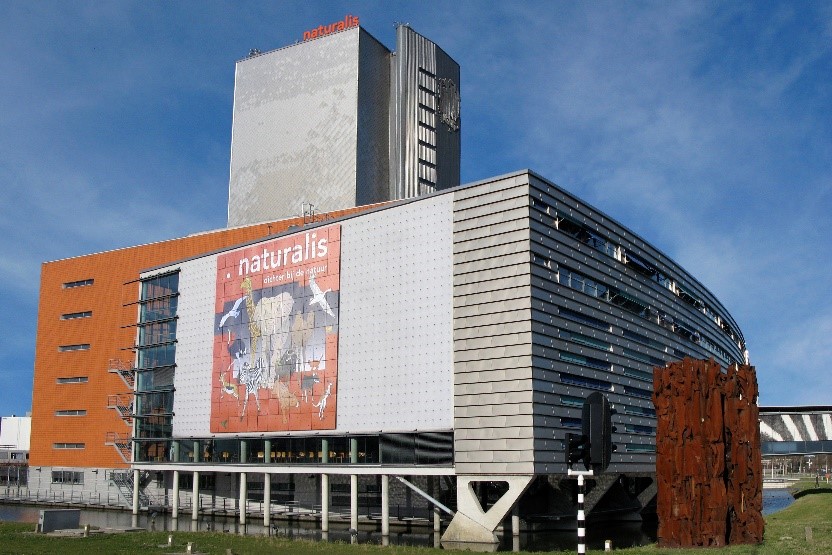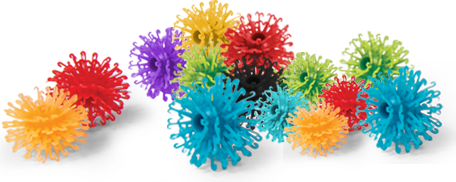Don’t forget the moral rights of architects!At the Dutch museum ‘Naturalis’ (an internationally recognized authority on biodiversity) the ‘T.Rex in Town-exposition’ can now be visited. This exposition attracts many visitors, Dutch as well as from abroad. The rest of the museum is closed for a large-scale renovation in order to be able to deal with the increasing number of visitors.
That renovation led to a tough legal dispute over copyrights and the accompanying moral rights of the architect Fons Verheijen who originally designed the museum. The architect claimed that with the planned renovation his design would be crippled which could jeopardize his reputation. This can be seen as a violation of his moral rights (the so-called ‘droit au respect’). During the legal proceedings, the renovation of the museum could no longer be postponed and had already started. Stopping the renovation and turning it back would be a disaster for Naturalis. Yet, that is what the court in interim injunction proceedings did: Naturalis had to stop the renovation until the court in the simultaneous proceedings on the merits would decide whether the renovation would mean an infringement of the rights of the architect. But then the parties settled: the only thing the architect could do was claim a high amount of damages. And the only thing Naturalis could do was pay. Ignoring the moral rights of the architect cost Naturalis 1.5 Million Euros… An expensive lesson. Hopefully the visitors do not have to pay for that. |
Animal drinks |
|
Over 10 years ago, a legal battle started between Red Bull and the Dutch coffee shop operator The Bulldog. This battle was caused by the registration and use of the trademark THE BULLDOG for energy drinks. In the opinion of Red Bull this trademark was confusingly similar to its own RED BULL mark, or at least The Bulldog would take unfair advantage of or could be detrimental to the reputation of Red Bull’s well-known trademark. The clash between the bulls ended up in a complicated legal battle about interpretation of law which – via the Dutch Supreme Court – even went all the way up to the highest European Court, the European Court of Justice in Luxemburg. The European Court gave its judgment and after referral decisions and more than 10 years of legal battle the court of appeal in The Hague simply ruled that the trademarks could not even be considered similar. As a consequence, to put it as simply as possible: in the view of this court Red Bull did not have a case and the court did not have to look into all the legal nitty-gritties that the parties had been debating about for years. Looking at the past, we would be surprised if this judgment is really the end of this sage. Red Bull is probably not ready to give up yet… |
Sometimes the strength lies in its simplicity |
|
The Dutch like beschuit, unique to the Netherlands and best described as a kind of dry, crunchy and brittle toast, always round of shape. This typical breakfast materialplays an important role in a typically Dutch tradition to celebrate the arrival of a baby (if you wonder, search for: ‘beschuit met muisjes’). The usual packaging for beschuit is a tight foil wrapping, which opens from the top. One disadvantage: how to get the biscuits out of the wrapping without breaking them… A problem that many Dutch experienced for decades, and which was solved by a Dutch man, Mr. Tempel, in 1999. He made a cut-out in the beschuit, which acts as a finger hold and filed a patent for this invention. A very simple but genius solution that is appreciated by many. Not surprisingly, premium biscuit brands wish to offer their customers with premium handling comfort provided by this cut-out technique, preferably without paying royalties to Mr. Tempel. Two Dutch biscuit players, Bolletje and Van der Meulen, have tried to invalidate the beschuit patent, without success. This ended in entering into a license agreement with Tempel. Recently, Continental Bakeries (CB) also wanted to have cut-out beschuit. CB invited Tempel for a meeting to discuss a license. For health reasons Tempel was not able to join any discussions at that moment and he asked for some patience. CB’s patience was tested and apparently it did not have much. Instead awaiting better moments, it initiated invalidity proceedings, once more trying to wipe the patent. CB stated that the claimed solution, as simple as it is, is obvious and cannot be considered a patentable invention. A wrong assessment and likely prompted by hindsight. Again, a multimillion company could not stand up against the patent of Mr. Tempel. After this defeat, at the end of 2016 in other court proceedings, CB tried to force Tempel to grant a license on the patent after all. But also these proceedings turned out in Tempel’s advantage, leaving CB empty handed. |
Registered design rights prove valuable again |
|
Every now and then the value of registered design rights (‘RCDs’ – Registered Community Designs) becomes clear in lawsuits over design protection. RCDs appear to be a hidden IP-secret. Recently, a new toy was launched: small plastic Velcro play balls in various colours named ‘Bunchems’. By ‘sticking’ these play balls to each other, many forms and figures can be made. The manufacturer, Spin Master, has protected the play balls i.a. with an RCD for the fluffy design of the play balls.
As in many cases, successful products can count on being copied. High5 sells almost identical small plastic Velcro play balls in various colours: ‘Linkeez’. Spin Master started interim injunction proceedings based on its registered EU design rights and won: the Linkeez play balls infringe the design rights of the Bunchems play balls. The interlocutory judge deems the RCD of Spin Master to be valid and the Linkeez play balls to be infringing. Besides being prohibited to use the Linkeez play balls in all EU-countries, High5 needs to publish a rectification. This newsletter can also be received automatically by e-mail. If you would also like to receive our IP Updates by e-mail, please subscribe via ipupdate@legaltree.nl |





